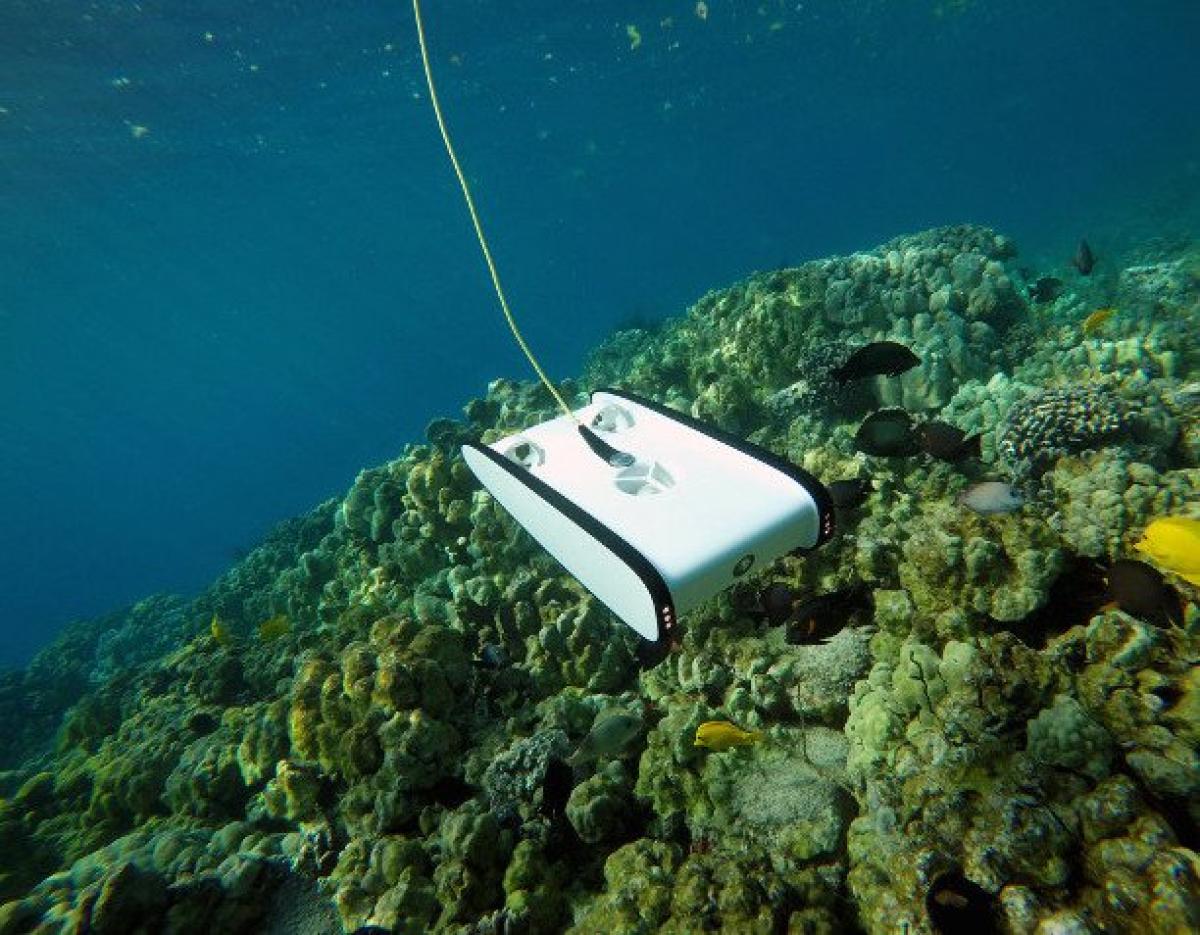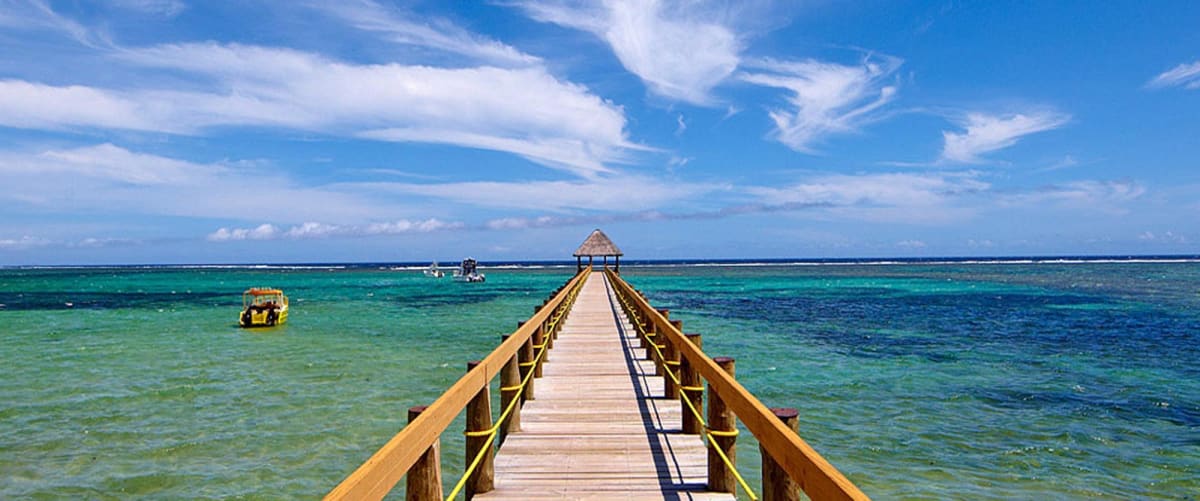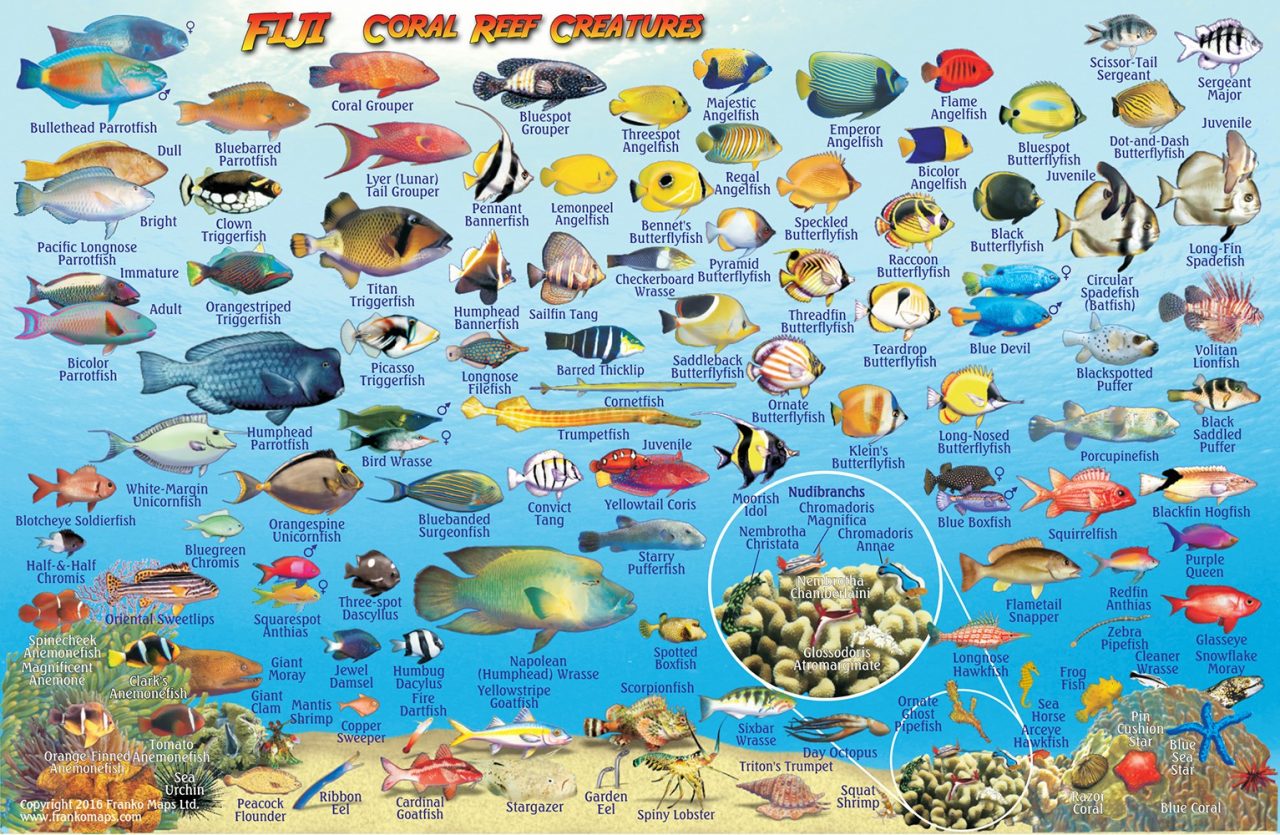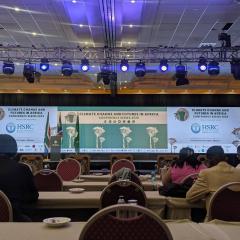
Pacific Flying Labs to Use Marine Robotics for Coral Reef Study
February 20th, 2018

Several of our Flying Labs will be using marine robotics this year in addition to aerial robotics. Next month, for example, our Pacific Flying Labs will be using the Trident, an underwater drone from OpenROV, one of our Technology Partners. Pacific Labs will train girls from an orphanage in Fiji and other local youths on how to use appropriate robotics solutions for social good. This will enable them to learn the skills they need to thrive in the workforce of the 21st Century. It will also give them the opportunity to explore the marine life around their island from a completely new perspective.

The marine robotics project will be led by our Pacific Flying Labs Coordinator, Ms. Amrita Lal. Local youths will be using underwater drones to explore and evaluate the health of coral reefs. The location selected has sea-grass, bare sand and corals in all directions. Participating youths will have been trained the day before at a swimming pool at the University of the South Pacific (USP) on how to operate underwater drones to capture live video footage and photographs. They will identify and count different species of fish—particularly Butterflyfish since these serve as an important indicator of coral reef health. They will also seek to identify and count Parrotfish, Surgeonfish, Tangs, Sea Urchins, Molluscs and Clams. In addition, youths will document the presence or absence of coral bleaching and diseases. While some initial visual analysis will be carried out on site with the live footage, the bulk of the analysis will take place at USP's GIS Lab the following day.

Dr. Stuart Kininmont, a Senior Lecturer at USP's School of Marine Studies, will be joining our marine robotics expedition. Dr. Stuart teaches Coral Reef Ecology, Marine Spatial Planning and Marine Geology and Sedimentology. In addition, two Marine Science Teaching Assistants will join the expedition to facilitate the data collection. Dr. Stuart will also teach youths on how to identify and count relevant marine life species when we're back at the USP lab. Youths will be given out pre-made charts with photos and descriptions of relevant species and will study the recorded footage frame by frame to document and analyze the health of the coral reefs.
After carrying out their visual analyses of the footage, we'll work with participating youths to help them produce formal presentations of the project along with their findings. They'll learn how to create a create a professional slide deck and how to give a compelling presentation. They will rehearse their presentations in front of each other in order to get further feedback. These youths will then give their talks at the opening of the Pacific Flying Labs Conference that week. This conference will bring relevant local, national and regional stakeholders to create a road map for Pacific Labs. Training youths across the region on how to use appropriate robotics for social good is a key priority of the labs.
We're also planning to explore what other types of drone-derived information products might also be useful for marine scientists and biologists. Colleagues at the Scripps Institution of Oceanography, for example, use diver-operated underwater cameras to take images of coral reefs which they process into high-definition 3D models. These models informs their "high-level ecological questions (community & landscape ecology: community structure & composition, spatial patterning, coral condition, structural complexity, etc) for peer-reviewed publication." The models also "provide baseline assessment data for marine managers and communities." We're keen to explore whether the high-definition 4K cameras on the underwater drones can provide sufficiently high-resolution data to create high-definition 3D models usable for advanced scientific research.
We're excited to work on this project with Amrita and local youth; a project made possible thanks our close partnership with USP's GIS Lab and the generous support of the Australian Department of Foreign Affairs and Trade (DFAT), Atlassian Foundation and USP. In addition, we want to thank our Technology Partner OpenROV for generously donating a Trident to our South Pacific Flying Labs.

Recent Articles

